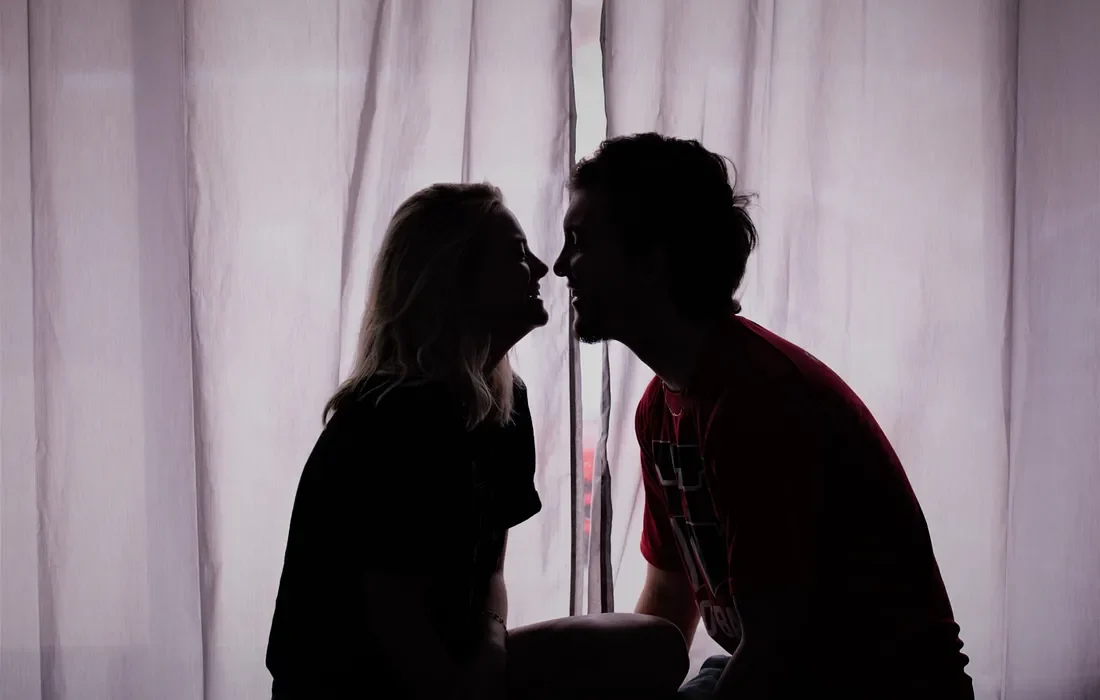There are worlds that exist only inside us.
Worlds where you say the perfect thing at the perfect moment. Where you’re loved exactly as you are. Where your deepest desires unfold without fear, without judgment, without consequence. These are the worlds we build in silence—on commutes, during sleepless nights, in the shower, while staring out windows. They come uninvited. They stay longer than we expect.
Fantasies.
We all have them. Even if we never speak them out loud. Even if we pretend we don’t.
Some are bright and obvious—dreams of success, wealth, fame, love, revenge. Others are shadowed and complex—power, danger, escape, submission, violence. Some carry joy. Others carry shame. But they all carry something deeper: a reflection of our unmet needs, our hidden fears, our suppressed truths.
Fantasy is not just a form of entertainment.
It is a form of communication—from the deepest parts of us, to the parts that are still listening.
The Brain’s Theater of Possibility
To understand why we fantasize, we have to understand how the brain works—not just as a machine for logic, but as a stage for emotion and possibility.
The brain is a prediction engine. It constantly simulates outcomes, rehearses responses, models alternate realities. This isn’t dysfunction. It’s design. From an evolutionary standpoint, the ability to imagine is a survival skill. Fantasizing about danger allows us to prepare. Fantasizing about pleasure helps us pursue it. Mental rehearsal gives us an edge in a world full of uncertainty.
This is why athletes visualize races before running them. Why performers picture success before stepping on stage. Why we replay conversations we haven’t had, arguments we never finished, love stories we wish we could live.
Our fantasies may never come true—but to the brain, they’re real enough to matter. They trigger the same neural pathways as actual experiences. This means fantasy is more than escapism. It’s a rehearsal. A wish. A simulation. A message.
And that message is worth listening to.
Fantasies as Mirrors of Desire
One of the most powerful things fantasy does is reveal what we long for—especially when we can’t admit it in real life.
Desire is rarely simple. It’s shaped by culture, trauma, family, fear, gender, and memory. Some of our wants are buried so deeply, we no longer recognize them. But fantasy doesn’t need permission. It bypasses shame and logic. It shows us who we are when no one is watching.
That recurring daydream about being adored by a crowd? Maybe it’s not just about fame. Maybe it’s about finally being seen. That fantasy of running away to a cabin in the woods? Maybe it’s not laziness. Maybe it’s the hunger for silence, autonomy, freedom from responsibility.
Even sexual fantasies—which are often misunderstood—aren’t always about literal action. Many are symbolic. A desire for domination might be a desire for surrender. A fantasy of voyeurism might be a cry for visibility. A longing for taboo might be a rebellion against control.
This doesn’t mean all fantasies should be acted on. Most shouldn’t. But all fantasies can be understood.
And when we stop judging them, we start understanding ourselves.
The Emotional Architecture of Escape
Sometimes we fantasize not to explore who we are—but to escape who we are afraid we’ve become.
When life feels unbearable, fantasy becomes refuge. It’s the doorway to a version of reality that feels safe, beautiful, possible. Children do this instinctively. A child with an unstable home life might create elaborate inner worlds—where monsters are friendly and heroes never abandon them. Adults do it too, though we disguise it better. We call it daydreaming. Zoning out. Thinking ahead.
But often, it’s emotional self-protection.
A fantasy of being with someone else when you’re stuck in a lonely relationship. A vision of quitting your job when you’re trapped in burnout. A secret image of revenge when you feel powerless.
Fantasy is the place we go when life becomes too much—and too little—all at once.
This doesn’t make fantasy bad. It makes it wise. It shows us where the pain is. Where the longing hides. What parts of us feel invisible, unheard, unloved.
And it offers us the first draft of a life that might finally feel like our own.
Shame and the Forbidden
If fantasy is so natural, why do we feel so ashamed?
Because fantasy often drifts into the realm of the forbidden. It violates social rules. Defies moral norms. Challenges our values. And when it does, we panic.
How can I imagine something I would never do?
But fantasy is not confession. It is exploration. The mind is not bound by the ethics of the real world. It is free to explore all that is terrifying, fascinating, dangerous, or beautiful. Just because you fantasize about something doesn’t mean you condone it. It means you’re human enough to contain contradiction.
This is particularly true for fantasies shaped by trauma. Survivors often develop complex, confusing fantasies that mimic the very power dynamics that hurt them. This isn’t pathology. It’s the mind’s way of reasserting control. Of rewriting the narrative on its own terms.
To shame the fantasy is to shame the survival strategy.
Healing begins not by silencing the fantasy, but by understanding what it’s trying to resolve.
Cultural Fantasies and Collective Longing
We don’t just fantasize as individuals. We fantasize as cultures.
Entire genres—romance novels, superhero films, war epics, dystopian sagas—are collective dreams. They reveal what our society yearns for, fears, idealizes. The perfect love story? Maybe it’s a longing for emotional safety in an age of disconnection. The apocalypse fantasy? Maybe it’s a desire to wipe the slate clean when the world feels unfixable. The rise of anti-heroes? Perhaps we’re grappling with the gray areas in our own morality.
These cultural fantasies are powerful because they validate our own. When you see your secret wish reflected on screen, you feel less alone. Less broken. More human.
But cultural fantasies can also be dangerous. They can normalize violence, objectify bodies, romanticize dysfunction. They can reinforce stereotypes under the guise of entertainment. This is why media literacy matters. Because what we watch—and fantasize about—shapes what we believe is possible.
And what we believe is possible shapes who we become.
Fantasies and the Self That Could Be
Underneath all fantasy lies one central idea: possibility.
Fantasies allow us to imagine different selves—braver, freer, wilder, softer, louder, bolder. They let us try on identities like costumes. What would it feel like to say no? To say yes? To take up space? To vanish completely? To be worshipped? To be feared? To be chosen?
Each fantasy is a message from the self you could be.
Sometimes that self is one you need to integrate into your life. The confident version of you. The sensual version. The assertive version. Other times, that self is symbolic—a guide, a protector, a shadow you need to understand.
Fantasy doesn’t just reveal who we are. It reveals who we want to be.
And that longing can become a compass.
When Fantasy Becomes Addiction
As powerful as fantasy is, it has a shadow side.
When fantasy becomes a replacement for reality—when we live more inside our heads than in our lives—it can become a trap. Escapism turns into avoidance. We stop taking risks. Stop being present. Stop connecting. Instead, we loop inside the same imagined stories, seeking relief that never fully comes.
This happens with digital escapism, too. Gaming, pornography, romance novels, social media personas—all can offer fantasy worlds that are safer than the real one. But they can also leave us emptier, more disconnected, more lost in a life that no longer feels real.
The answer isn’t to ban fantasy—but to balance it.
Fantasy should inspire action, not replace it. It should point toward desire, not distract from it. It should be a window—not a wall.
The danger of fantasy is not that it’s false.
It’s that we stop believing reality could ever be that good.
Turning Fantasy Into Fuel
So what do we do with our fantasies?
We listen to them.
We write them down. Speak them out loud in safe places. Explore them with curiosity, not judgment. Ask what they want us to feel, to notice, to grieve, to claim. We let them be strange, messy, wild, tender.
And then—we ask: What part of this could be real?
If you fantasize about being desired, where in your life can you cultivate intimacy?
If you long for freedom, what’s one small way to break a pattern?
If you imagine escape, what are you running from—and what might it mean to face it?
Fantasy is not a lie. It is the truth told sideways. It is the dream before the decision. The longing before the leap. The whisper before the roar.
When honored, it can change everything.
The Truth Fantasy Tries to Tell
We live in a culture that is terrified of inner life. We prioritize action over imagination. Logic over longing. Productivity over presence.
But inside each of us is a world that refuses to die. A world that wants to be seen. Not just for what it hides—but for what it reveals.
Fantasies are not distractions. They are invitations.
They invite us to feel. To want. To risk. To become.
They show us where we’ve been wounded. Where we’ve been silenced. Where we still hope.
And maybe most beautifully—they remind us that no matter how mundane life becomes, we still carry magic. Still carry wonder. Still carry the ability to imagine something more.
Because even when everything else has been taken from us—even when the world tells us who we must be—we still have that quiet, secret place:
Where anything is possible.






